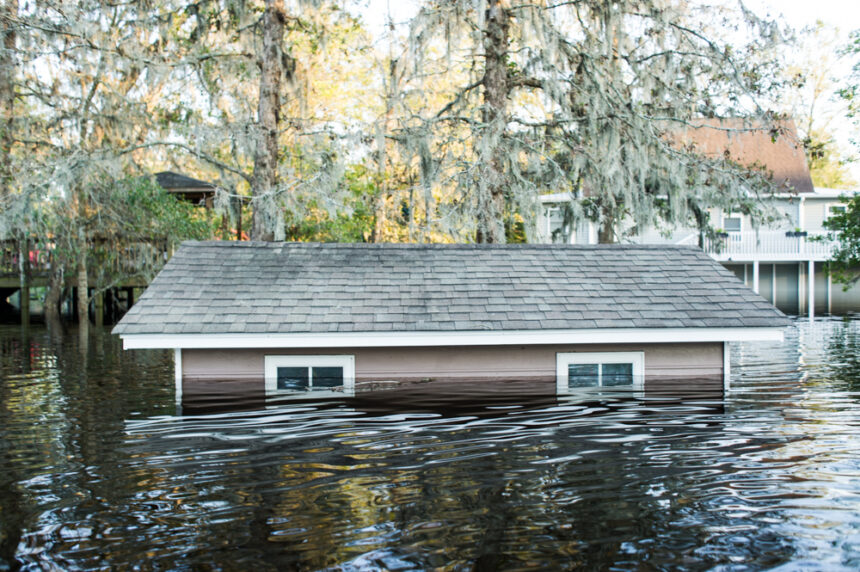NORTH CAROLINA — Advocates believe homebuyers will be able to make more informed decisions after a rule requiring sellers to disclose detailed information about their properties’ flood risk and history goes into effect at the beginning of next month. The change may also impact the state’s real estate and insurance markets.
READ MORE: NC, FEMA advance programs to address flood risk properties in Pender County
In March, the North Carolina Real Estate Commission finalized an amendment to the Residential Property and Owners’ Disclosure Statement — which is supposed to provide information about a property involved in a real estate transaction. It will require disclosures about flood risk and history to potential buyers.
The REC unanimously granted a 2022 petition filed by the Southern Environmental Law Center, submitted on behalf of several nonprofit groups, including the National Resources Defense Council and the NC Justice Center for greater transparency requirements.
The petition argued homebuyers had uneven access to information in North Carolina real-estate transactions, as sellers may be privy to important information they were not required to provide before. The state’s previous disclosure only mandates sellers disclose “actual knowledge” of the property being subject to a flood hazard, which NRDC argued lacked sufficient specificity.
Questions sellers must answer in the new disclosure include:
- Has any structure on the property ever flooded? If yes, provide the number of times.
- Have you ever filed a claim for flood damage to the property with any insurance provider, including the National Flood Insurance Program? If yes, provide the amount received.
- Is there flood insurance on the property? If yes, provide the current premium amount.
Despite the potential impact on property values, SELC legislative counsel Brooks Rainey Pearson and NRDC attorney Joel Scata said they were unaware of any groups opposed to the new transparency requirements.
“I think there could be a concern that individual properties that have a strong or long history of flooding could see some decrease in value,” Scata said. “But, overall, I think there’s a recognition that flooding is becoming more severe, and people really need access to that information because flooding is so costly.”
A 2020 National Bureau of Economic Research study carried out by UNC city and regional planning professor Miyuki Hino found floodplain homes in the United States were overvalued by a total of $34 billion, leading to concerns about long-term stability of real-estate markets.
“The price penalty for flood risk is larger for commercial buyers and in states where sellers must disclose information about flood risk to potential buyers, suggesting that policies to improve risk communication could influence market outcomes,” Hino’s study stated.
Despite the potential dip in property values caused by increased flood history disclosures, Hino told NPR transparency requirements are ultimately better for buyers and sellers.
Failing to factor flood risk information into property values can lead to a “flood risk housing bubble,” she argued, which would be better to slowly deflate than allowed to destabilize markets with an abrupt correction. PCD reached out to Hino to ask her view of North Carolina’s new change but did not receive a response by press.
Scata argued Thursday in an interview with PCD new disclosure requirements will increase market efficiency through greater access to information.
“New buyers will feel more secure in what they’re getting,” he said. “So, overall, I think this is going to be a plus for the real estate industry in North Carolina.”
According to the Insurance Journal, the rule change may also impact the state’s insurance market by giving agents more information to use in sales.
In January, the North Carolina Rate Bureau cited increased flood and storm risk as the reason for its 99% home insurance rate hike request. North Carolina Insurance Commissioner Mike Causey rejected the request in February; NCDOI spokesperson Barry Smith told PCD the department is reviewing the NCRB’s data ahead of the October hearing to settle future rates.
Causey told PCD the NCDOI was in support of new flood risk disclosure requirements and recommended residents check with their agents about obtaining appropriate insurance.
“Transparency and full disclosure are always a good thing for consumers,” Causey said Monday. “The real estate commission’s flood disclosure rule provides a good opportunity to remind our residents that standard homeowners and dwelling insurance property rates exclude flood insurance.”
Tips or comments? Email journalist Peter Castagno at peter@localdailymedia.com.
Want to read more from PCD? Subscribe now and then sign up for our morning newsletter, Wilmington Wire, and get the headlines delivered to your inbox every morning.











